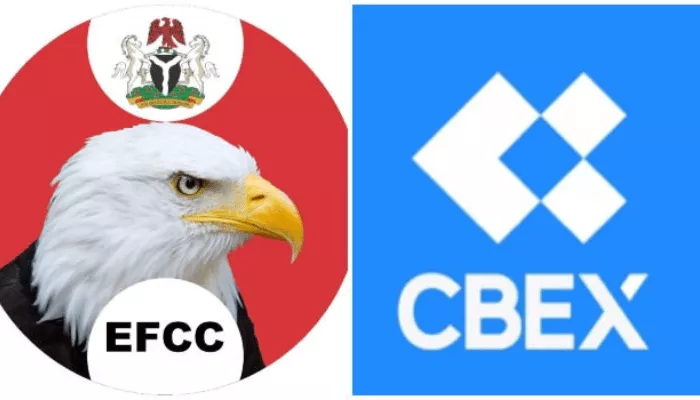Nigeria’s digital asset scene is buzzing about Crypto Bridge Exchange, or CBEX. The platform is reportedly back in business, a surprising move considering it’s banned by the Securities and Exchange Commission (SEC) and under an EFCC microscope for an alleged N1.2 trillion fraud that might have hit 600,000 investors. This restart has stirred confusion and worry, especially for people whose money vanished when the platform suddenly went dark following its crash back in April 2025. As someone who’s watched the digital finance space for over ten years, let’s break down what’s happening, look at the claims, and talk about the real dangers here.
Contents
CBEX is Back: But Is It Safe?
Word on the street is that CBEX resumes operations, flying directly in the face of regulatory crackdowns. New users can apparently sign up, deposit funds, trade, and even withdraw money. That’s a world away from the experience of earlier investors who saw their account balances wiped out when CBEX collapsed on April 14, 2025.
Getting their original money back looks tricky for those early investors. Inside sources paint a complicated picture:
- Pay More to Play: To even have a chance at reactivating accounts, users who had less than $1,000 might need to deposit another $100. If they had more, it could be $200.
- Slow Withdrawals: Even after putting in more cash, getting the original money out isn’t immediate. The plan, reportedly, is to allow withdrawals of up to half the old balance starting June 25, 2025, with the rest maybe coming free by August 25, 2025.
- Verification Hurdles: All this depends on completing some “insurance verification,” tied to a financial audit supposedly happening through a UK firm.
Asking people to put more money in just to maybe get their frozen funds back? That immediately sounds alarms, echoing tactics used in recovery scams targeting people already hurt.
CBEX’s Story vs. The Regulators’ Actions
The people behind CBEX are trying to spin the situation away from fraud. They blame an “AI trading incident” on April 14th, claiming the system was attacked or glitched, causing massive losses and clearing accounts. They insist the platform is insured, and the audit is meant to figure out the losses for compensation via an “ST Fund company.” An admin named ‘Laura’ on Telegram has even suggested sophisticated attacks were involved, pending results from a UK government probe.
But Nigeria’s regulators tell a very different story:
- SEC Says Illegal: Nigeria’s SEC had already labeled CBEX operations illegal before this restart attempt, making their stance clear in an official clarification. The SEC head, Dr. Emomotimi Agama, stressed that getting registered with the CAC or EFCC’s SCUML (which CBEX did) means nothing for SEC approval to handle investments.
- EFCC Investigating: The EFCC confirmed its investigation into the huge alleged fraud before CBEX reappeared. The agency put out wanted notices for several promoters, including a foreign national, Elie Bitar. One promoter has reportedly already turned himself in.
- NFIU Warning: The Nigerian Financial Intelligence Unit (NFIU) also warned generally about unregulated platforms that look like Ponzi schemes, a description fitting CBEX.
This clash—CBEX claiming legitimacy through UK ties and audits versus firm action from Nigerian authorities—makes things incredibly risky for anyone involved.
What Trading on the New CBEX Looks Like
For anyone using the platform now, CBEX trading seems different. Information suggests:
- Manual Trades: Instead of automatic AI trading, users now get signals (supposedly several times daily via Telegram) and have to manually enter codes to make trades.
- New Users Can Withdraw: New accounts aren’t caught up in the audit mess, apparently. They can deposit, trade, and take out profits. Referral bonuses are also said to be withdrawable right away.
- Disputing the Numbers: CBEX insiders also claim the audit aims to challenge the N1.2 trillion fraud figure, arguing the actual loss is much smaller, around N126 billion.
Switching to manual signals might seem like more control, but it doesn’t solve the core problems: Is the platform legitimate? Is it solvent? What happened to the missing money? Trading on CBEX remains murky and dangerous.
Spotting the Danger Signs: Regulatory Warnings
The official warnings are essential reading for anyone thinking about CBEX or similar setups. The NFIU pointed out common red flags for Ponzi schemes, many reflecting CBEX‘s history and current situation—a pattern often seen in Nigeria’s Ponzi peril:
- Impossible Returns: CBEX originally promised 100% profit in 30 days. Real investments have risks; guaranteed high returns like that are a huge warning sign.
- Vague Business Model: “AI trading” sounds fancy, but CBEX offered few checkable details. The current “AI attack” story hasn’t been independently confirmed.
- Recruitment Focus: While maybe less emphasized now, referral bonuses were key and continue, typical of pyramid structures.
- Lack of Proper Registration: Operating without a clear SEC investment license is a major issue. Relying on CAC/SCUML registration is misleading, as the SEC DG pointed out.
- Pressure and Conditions: Making old users pay more exploits their hope of getting money back.
The NFIU also called out other platforms (eWealth Connect, WWCoin/TOFRO, Delux, ADK) for similar risks, urging caution.
Expert Take: Tread Very Carefully
From a tech and finance viewpoint, the CBEX situation is worrying. Restarting operations while under active investigation by national fraud and securities agencies is bold and questionable.
Keep these points in mind:
- Ignoring the Ban: Operating despite an SEC ban invites legal trouble for the platform and financial risk for its users.
- Unproven Claims: The stories about AI failure, insurance, and UK audits haven’t been backed up by independent sources. Trusting only the platform’s word is risky.
- The “Pay More” Trap: This is highly suspicious and not how legitimate recoveries usually work. It feels like a way to pull more money from victims.
- Investigation Isn’t Over: The EFCC probe continues; people are wanted. More action or shutdowns could happen anytime.
- No Safety Net: With the SEC calling it illegal, there’s likely zero regulatory protection for users engaging with CBEX now.
Conclusion: High Stakes and Lingering Doubts
CBEX relaunching creates a risky mess. Promises of audits and recovery clash with serious allegations, an EFCC investigation, and an SEC ban. Whether new or old, the CBEX trading platform operates outside Nigeria’s recognized investment rules.
Newcomers might be tempted by quick profit promises, while earlier investors face putting in more money for only a chance of getting some back. Big questions hang in the air: Was it a Ponzi scheme from the start? Did the AI really fail? Will the audit be transparent? What will regulators do next?
Until independent sources provide clear answers and the regulatory situation is resolved, getting involved with CBEX is playing with fire. Do your homework, listen to the warnings from official bodies like the SEC and EFCC, always check if a platform is properly registered with the SEC for investments, and remember the old saying: if it sounds too good to be true, it probably is. Report suspicious operations to the authorities.










